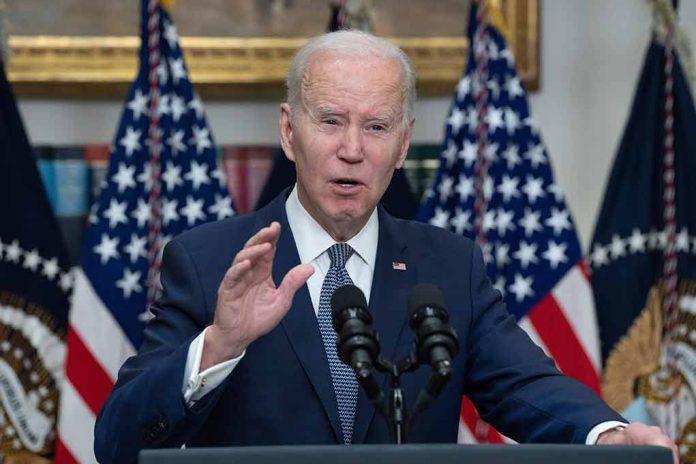
Tensions Flare as Hamas Leader Assassinated
In a shocking turn of events, Hamas leader Ismail Haniyeh was killed in Tehran during Iran’s presidential inauguration, sparking outrage and accusations against Israel. This high-profile assassination has sent shockwaves through the Middle East, threatening to derail ongoing peace efforts and potentially igniting a wider regional conflict. As the world watches with bated breath, the Biden administration finds itself walking a diplomatic tightrope, balancing its alliance with Israel against the need for stability in the region. This story is crucial for understanding the complex dynamics shaping international relations and the fragile peace in one of the world’s most volatile regions.
US Denies Involvement, Expresses Concern
In the aftermath of Haniyeh’s assassination, US Secretary of State Antony Blinken was quick to distance the United States from the incident. Blinken stated unequivocally, “The United States was not aware of or involved in” the killing. This denial comes as the Biden administration grapples with the potential fallout from the assassination, which threatens to complicate ongoing efforts to broker a ceasefire in Gaza and secure the release of hostages.
US officials are determined to continue pushing for a cease-fire in Gaza even after an Israeli strike killed a top Hamas leader in Tehran, according to people familiar with the Biden administration’s thinking. https://t.co/Av5omkyAja
— Bloomberg Middle East (@middleeast) July 31, 2024
White House Concerns Over Escalation
The White House has expressed deep concern about the potential for escalation following the assassination. National Security Council spokesperson John Kirby acknowledged the gravity of the situation, stating, “These reports over the last 24-48 hours certainly don’t help with the temperature going down. I’m not going to be Pollyannaish about it; we’re obviously concerned about escalation.”
“All of this adds to the complicated nature of what we’re trying to get done. And what we’re trying to get done is a ceasefire deal.” – John Kirby
The Biden administration now faces the challenge of maintaining its diplomatic efforts while navigating the heightened tensions between Israel and its adversaries.
Israeli Stance and Regional Reactions
Israeli Prime Minister Benjamin Netanyahu has taken a defiant stance in the wake of the assassination, claiming significant military successes against Israel’s enemies. Netanyahu declared, “Israel will exact a very heavy price for aggression against us from whatever quarter,” signaling a hardline approach that may further strain relations with the Biden administration.
“Everything Israel has achieved in recent months, we achieved because we did not give in, because we made courageous decisions despite the great pressure at home and abroad” – Benjamin Netanyahu
Meanwhile, Iran and its allies have vowed retaliation against Israel, with Ayatollah Ali Khamenei warning of “harsh punishment” for what Hamas called a “treacherous Zionist raid.” These threats of retaliation have heightened fears of a broader regional conflict, putting pressure on the Biden administration to prevent further escalation.
Sources
- Biden Admin Claims It Was ‘Not Aware of or Involved in’ Demise of Hamas Leader
- Hamas leader Ismail Haniyeh killed in Iran, sparking fears of wider war
- Blinken Says US Not Involved in Killing of Hamas Leader
- White House says reports of Hamas leader’s assassination in Iran ‘don’t help with the temperature going down’
- Killing of Hamas political leader points to diverging paths for Israel, US on cease-fire
More from Around the Web
BREAKING: Hamas leader Ismail Haniyeh assassinated by Israeli strike, Hamas says | LiveNOW from FOX
Top Hamas leader Ismail Haniyeh killed in Iran | BBC News
Killing of Hamas political chief in Iran sparks fears of wider war | Power & Politics
“For Hezbollah, the loss is very, very operational. For Hamas, the loss is very, very political.;
“For Hezbollah, the loss is very, very operational. For Hamas, the loss is very, very political. But in both cases, [they] lost key interlocutors who were key people representing their group to Iran.” https://t.co/nXQJkozw24
— Matthew Levitt (@Levitt_Matt) August 1, 2024
Hamas leader Ismail Haniyeh was killed early Wednesday in central Tehran, an apparent assassination that Iran and Hamas blamed on Israel and pledged to avenge.
Hamas leader Ismail Haniyeh was killed early Wednesday in central Tehran, an apparent assassination that Iran and Hamas blamed on Israel and pledged to avenge. The killing could potentially plunge the unstable region further into chaos. https://t.co/DKjJS03e41
— The Washington Post (@washingtonpost) July 31, 2024









